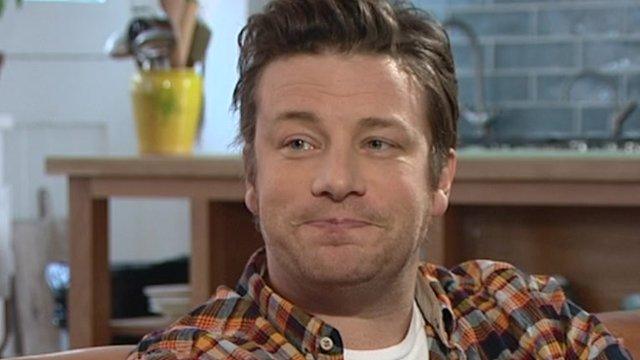Chef Jamie Oliver praises Plaid Cymru's 'pop tax' plans
- Published
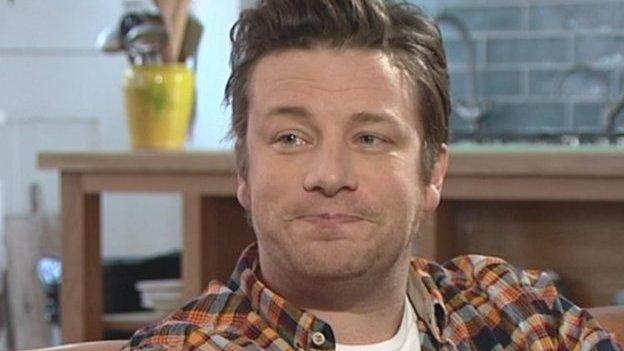
Jamie Oliver says poor diet and too much sugar has 'devastating effects' on children's futures
Celebrity chef Jamie Oliver has praised Plaid Cymru's call for a levy on sugary drinks in Wales, a so-called "pop tax".
Research for Plaid has suggested a 20% tax on the drinks could cut the number of obese people in Wales by 8,300.
Oliver, who is to charge 10p more for sugary drinks in his UK restaurants, said it was "good to hear" of a party taking the issue "seriously".
Labour said Plaid's plan to fund 1,000 extra doctors with such a levy was "demonstrable nonsense".
On Friday, Oliver said he had "seen first hand the devastating effects that a poor diet and too much sugar is having on children' futures".
"I firmly believe we need to take urgent action on this public health crisis," he said.
He added that money raised by his own "child health levy" would be used to fund "food education for children".
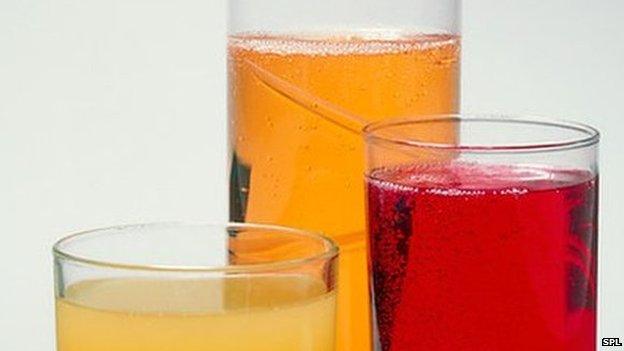
Fizzy drinks can contain up to 15 teaspoons of sugar in a standard can
Welcoming his backing, Plaid Cymru health spokesperson Elin Jones said: "Plaid Cymru has long-announced our positive plans to introduce a sugary drinks levy in Wales, and it's good to see that Jamie Oliver is introducing similar voluntary measures in his restaurants as he continues to campaign for action."
However, the Welsh Labour government claimed the idea would not work.
Deputy Health Minister Vaughan Gething said: "They say this scheme, which we can't actually introduce under the current devolution framework, would pay for 1,000 doctors.
"This is just demonstrable nonsense - it would require everyone in Wales to spend all day drinking pop to pay for that number, even if they could be recruited from around the world."
The British Soft Drinks Association (BSDA) has insisted such a tax would "neither have the health nor economic impact" suggested, claiming that "obesity stems from a range of factors, not one product".
- Published3 July 2014
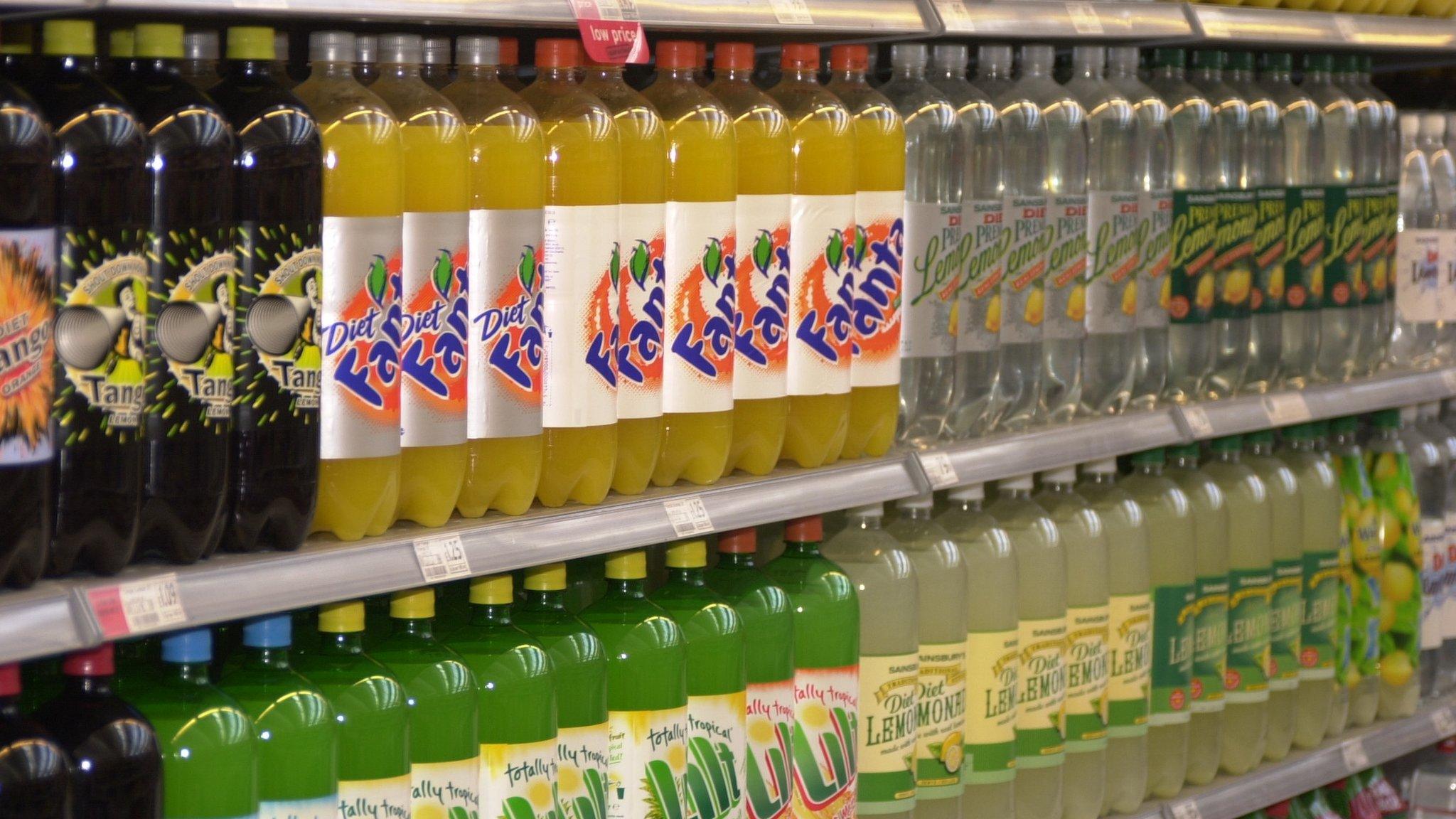
- Published1 November 2013
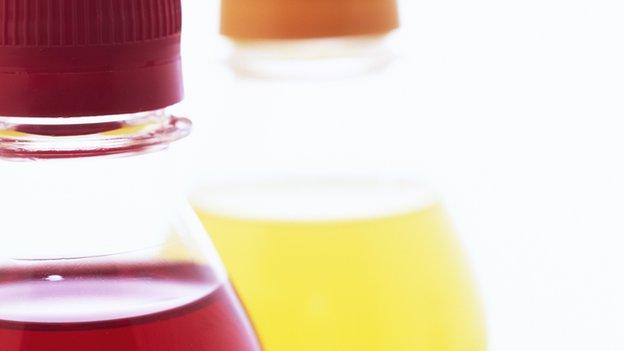
- Published25 June 2015
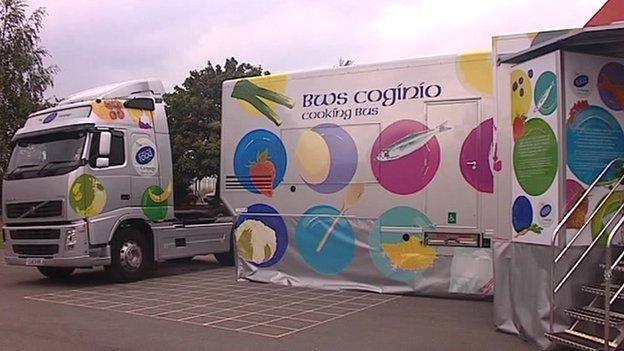
- Published5 May 2014
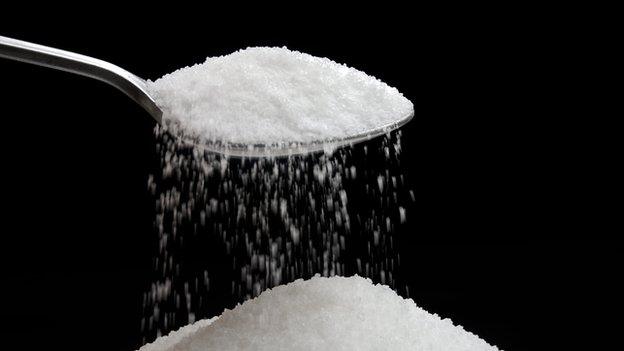
- Published1 December 2012
